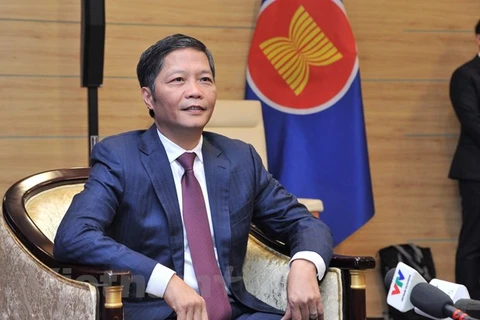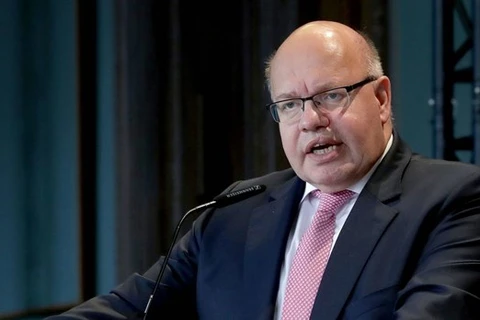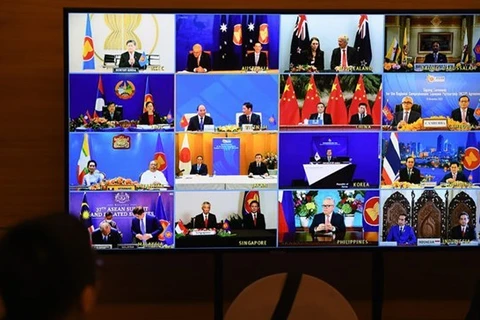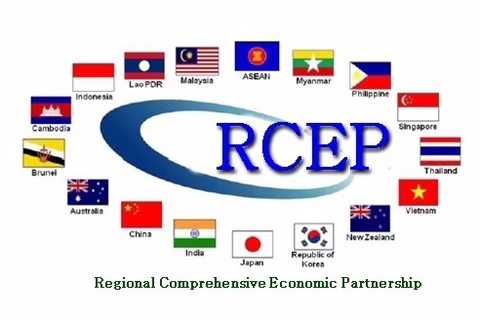 The recently-signed Regional Comprehensive Economic Partnership would not create any shocks in term of tariff liberalisation. (Photo: VNA)
The recently-signed Regional Comprehensive Economic Partnership would not create any shocks in term of tariff liberalisation. (Photo: VNA) Hanoi (VNS/VNA) - The Regional Comprehensive Economic Partnership (RCEP) would not worsen the trade deficit Vietnam was running with signatory markets, according to the Ministry of Industry and Trade.
Statistics showed that Vietnam ran a trade deficit worth 5.58 billion USD with ASEAN, 27.71 billion USD with China and 21.37 billion USD with the Republic of Korea in the first nine months of this year, which triggered concerns the deal might widen the country’s trade deficit figures.
The ministry said that Vietnam already participated in ASEAN Trade in Goods Agreement (ATIGA) and free trade agreements (FTAs) between ASEAN and other partner countries, meaning that trade liberalisation had already been implemented over the past two decades.
RCEP was basically an agreement which unified pre-existing bilateral agreements between ASEAN and five of its major trade partners, which would not create any shocks on tariff liberalisation to Vietnam, the ministry said, adding that RCEP mainly aimed to create favourable conditions for business operation and investment.
Hence, the trade deal would not weigh on the trade deficit. In the long term, Vietnam’s trade would even improve, according to the ministry.
The trade deficit was not the only factor to consider about an FTA, the ministry said. More importantly, FTAs would help enhance cooperation between economies, attract foreign investment and bring other values to the economy and citizens.
Looking at the time when Vietnam joined the World Trade Organisation, the country ran a considerable trade deficit but this was an opportunity to improve the competitiveness of the economy and enterprises.
Nguyen Thi Quynh Nga, Deputy Director of the ministry’s Multilateral Trade Policy Department, urged Vietnamese firms to study the trade deal carefully to be able to grasp the opportunities arising from the trade deal and overcome challenges from the intensifying competition pressure on the domestic market.
RCEP was signed last Sunday between 15 Asian countries, excluding India, after eight years of negotiations.
The ministry said that RCEP would come into force when at least six ASEAN countries and three partner countries approved the trade deal.
Minister of Industry and Trade Tran Tuan Anh said that RCEP provided a perfect opportunity for Vietnam and other ASEAN countries to become a centre of investment attraction.
RCEP creates the largest free trade-economic region in the world, accounting for 30 percent of global GDP with 2.2 billion consumers./.
VNA























